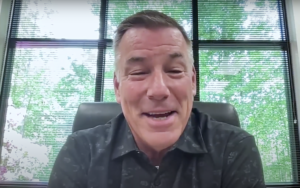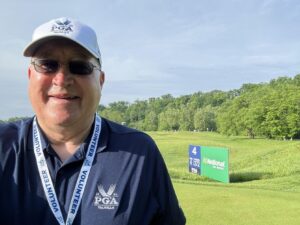
EDITORS’ NOTE: The following two stories are part of an ongoing Baptist Press series to explore and describe how individuals, churches, associations and conventions exhibit a passion for Christ and His Kingdom.
LITTLE ROCK, Ark. (BP)–When Randy Brantley realized that 95 percent of youth attending Arkansas Baptists’ annual youth evangelism conference were already saved, he decided there must be a better way to reach lost students.
Brantley, who has worked with youth since 1985 and as student evangelism director for the Arkansas Baptist State Convention since 1989, began to sense God stirring his heart a new outlook in 1998.
“We found that there are lots of kids ready to hear the Gospel if it is presented in a culturally relevant way,” he said. “So much of what we do in the local church is designed for kids that speak the language of Zion. We’ve asked, ‘What does it take to capture the attention of lost teens? How do we bridge the gap?’”
And the idea for Real Encounter Youth Crusades began to take shape. Through a partnership with Brad Bennett of Real Ministries, Brantley and the state convention have embarked on a way to bridge that gap.
Real Encounter Youth Crusades incorporates extreme sports, drama, a band and hi-tech video and lighting to capture the attention and curiosity of lost teens. In school assemblies, the Real Encounter team will use humorous dramas, videos and music that resonate with teen issues, and freestyle motorcycle stunts to present a character-based message. They address topics like bullying, positive attitudes, personal integrity, goal-setting and encouragement — and the positive difference that even one person can make.
Students are invited to attend the crusade’s large-scale extreme sports events over the next two evenings. The gatherings are held in locations like a school gym, stadium or parking lot, or at the county fairgrounds, rather than at a church where unchurched teens might be reluctant to go.
“We’re capturing their attention in a way they don’t expect church to try to capture it,” Brantley said. “We’re attracting a group of young people who don’t have a clue about church or they have misconceptions.” On average, 50 percent of the student body will turn out for the featured evening events.
In 2004, the ABSC conducted Real Encounter Youth Crusades in six small- to mid-sized communities and registered 594 salvation decisions, 618 renewed commitments and 47 commitments to ministry. The final 2004 event took place in Clinton, Ark., a town of fewer than 3,000 residents. More than 500 attended each night’s event held on the county fairgrounds, with more than 100 people turned away the second night due to lack of space.
Heath Clower, youth pastor at First Baptist in Clinton, said that the crusade was one of the best outreach initiatives he has been a part of. “It isn’t just another gig for them,” Clower said of the partnership between Brantley and the ABSC and Real Ministries. “If you follow along with the plans, it is very effective. … They were concerned with our event — that things went well. They asked questions about what kind of group they’d be speaking to and ways to be effective.”
“Students will come to hear what you have to say,” Brantley said, “when you prove that you are credible and have a message worth listening to. The genius of Real Encounter is that we take the Gospel of Jesus out of the church and into the streets where youth feel comfortable. We present a professional extreme sports stunt show and then with the same level of excellence invite the students to experience the Gospel through music, drama and the preaching of God’s Word.”
Brantley believes that while churches today are hungry to reach lost youth, they are also scared of them. Yet he also believes that whoever loves them first will reach them.
However, the biggest challenge is helping the traditional church understand how to establish a relationship with secular-minded students, and then to have patience to disciple them to become fully devoted followers of Christ, Brantley said. “Many Christians want the discipleship process to be nice and clean, but the reality of reaching today’s unchurched youth is that it is uncertain and messy,” he said.
Part of Real Encounter is training youth and adults to counsel and encourage teens interested in exploring a relationship with Jesus Christ. Their goal is to train at least 50 adults in every community to counsel teens, but they often train as many as 100. “When a community begins to have heart trouble for teens, God seems to raise up people to meet the need,” said Brantley, who conducts the training about four weeks prior to the crusade.
Since the first crusade in 2000, 1,535 people have been trained to share the Gospel and be “encouragers” to the teens who respond to the Crusade invitation to turn to Christ. “Sometimes it’s difficult to motivate adults to learn to share their faith,” Brantley said, “but this gives people a reason to be trained. We show them how they can be a relational bridge between a lost teenager and a local church.”
Four to six months of preparation precede each crusade, with Brantley being the first contact that a Southern Baptist church in Arkansas would make to schedule a Real Encounter. The state convention requires the sponsorship of three or four local churches, and Brantley’s first task is to meet with pastors and youth pastors to cast the vision for the outreach.
Should they decide to schedule a crusade, the convention provides $3,000 toward the estimated $8,000 total cost, with the remainder to be raised by the sponsoring churches. The cost estimate includes honorariums for the three independent ministries that make up the Real Encounter ministry team: Real Ministries, Clear Vision Drama Company and a Christian band, plus travel, sound and lighting equipment rental, space rental and an optional pizza blast or tailgate party.
Brantley also works with the sponsoring churches to put together steering committees and helps them work together. “It isn’t uncommon to see Baptists, Methodists, Assemblies of God all work together to see lost kids won to the Lord,” he said. The state convention’s policy is to work through Southern Baptist churches, but that the decision about other sponsoring churches is made locally.
Detailed material is provided to guide various steering committees to contribute to the success of the event. Teams are formed from the sponsoring churches to cover areas like finance, publicity, school assemblies, event coordination, prayer and counseling.
The state convention takes follow-up seriously, with a plan in place. “We don’t believe in just reaching them, but also connecting them to a church,” Brantley said. “Evangelism isn’t complete until a student gets into a discipling relationship with a local church.”
Master lists of all of the decision records are distributed to the sponsoring churches. Youth pastors are encouraged to take their lists to their youth groups and pray specifically for the names on their lists. They involve youth in the follow-up by having them get with the students on the list whom they know and ask the question, “Have you told your pastor about your decision at Real Encounter?” If the answer is “I don’t have a pastor,” then the door is opened to invite that person to church.
Also, the decision list might be divided among the sponsoring churches according to the address proximity to the church. Then the local volunteers who counseled students at the crusade are requested to follow up by phone or mail within 48 hours of the event. “Follow-up must be intentional, or it won’t take place,” Brantley said.
A month after his community’s Real Encounter event, Bill Newton, youth pastor of Lonoke Baptist Church, said, “The fruit of the Real Encounter is having a ripple effect on our churches. As we are going out to follow up on the youth that we reached through the crusade, we are finding families that need to be reached.”
Brantley told of a woman and her husband at one of the events who served as counselors, or “encouragers,” and were able to lead two young people each to the Lord. In tears she told Brantley, “I hated the music, but I love what God has done. I honestly thought we had won all the kids we could. When I saw hundreds raise their hands, I realized we have only scratched the surface.”
Wishing he could take that “dear woman” and her testimony with him everywhere, Brantley stated, “God has his hand on Real Encounter. We’re amazed that there are so many lost kids in our state. But when you have adults with broken hearts for youth, kids can be saved.”
–30–















